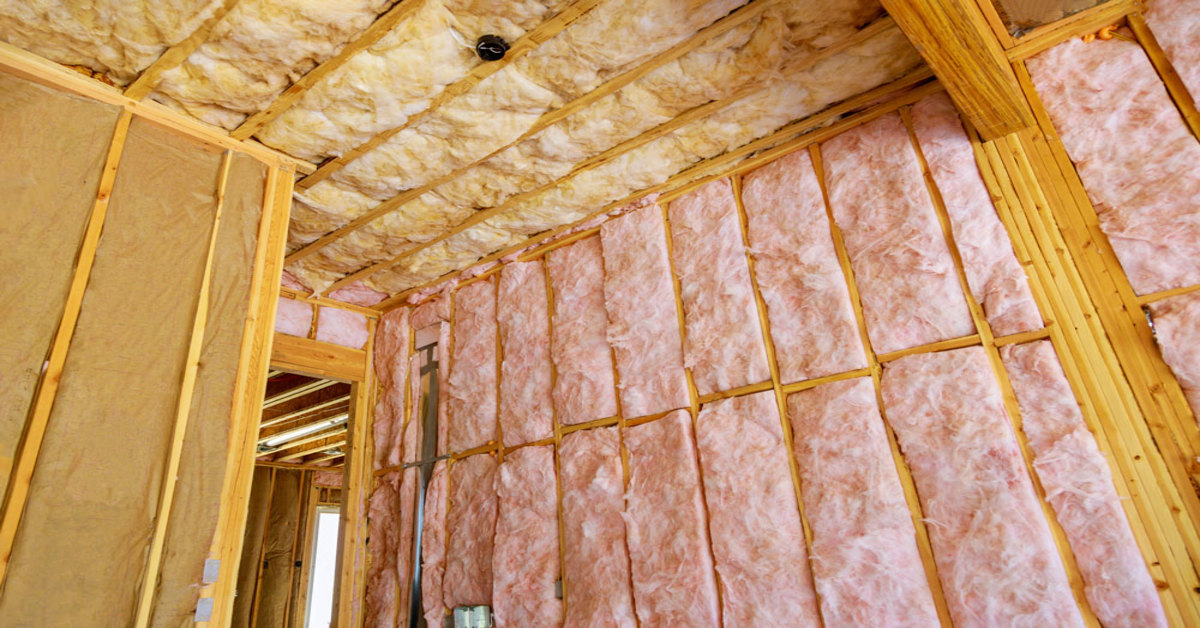Index Surge: Amplifying Your Insights
Stay updated with the latest trends and news across various industries.
Insulate Your Castle: Keep the Heat and Cold at Bay
Discover expert tips to insulate your home and conquer temperature swings. Keep your castle cozy year-round—don’t miss out!
Top 5 Benefits of Proper Home Insulation: Why It Matters
Proper home insulation is essential for maintaining a comfortable living environment while also reducing energy costs. One of the primary benefits is energy efficiency, which ensures that your heating and cooling systems operate effectively, minimizing energy waste. According to studies, homes with adequate insulation can significantly lower utility bills, allowing homeowners to save a considerable amount over time. Moreover, proper insulation helps to create a more stable indoor temperature, reducing the need for frequent adjustments to thermostats and ultimately contributing to a greener lifestyle.
Another crucial benefit of proper home insulation is its impact on noise reduction. Insulation materials can serve as a sound barrier, blocking external noises from entering your home and providing a more peaceful living space. Additionally, insulation can improve your home’s value; homes equipped with high-quality insulation often attract buyers due to the associated energy savings and comfort. To summarize, the top benefits of proper home insulation include:
- Increased energy efficiency
- Lower utility costs
- Improved indoor temperature regulation
- Noise reduction
- Enhanced home value

How to Choose the Right Insulation Material for Your Home
When it comes to selecting the right insulation material for your home, it's crucial to consider several factors that will impact your comfort and energy efficiency. First, evaluate the climate in your area; for instance, if you live in a region with extreme temperatures, materials with higher R-values, such as spray foam or fiberglass, may be ideal. Additionally, assess the type of your home—whether it's a new build or an existing structure—as this will influence not just the type of insulation you choose, but also the method of installation. Understanding the pros and cons of various materials, including cellulose, mineral wool, and blanket insulation, can guide you in making an informed decision.
Next, think about the application of the insulation material. For attics, rigid foam panels or blown-in insulation can provide excellent thermal resistance, whereas walls may benefit more from batt insulation or spray foam for air sealing. Keep in mind that the environmental impact of the insulation material is also essential; opting for eco-friendly options like recycled cellulose or sheep's wool may reduce your carbon footprint and improve indoor air quality. Lastly, budget considerations should not be overlooked, as prices can vary significantly among different materials. Carefully weighing these factors will help you choose the perfect insulation to enhance your home's energy efficiency and comfort.
Common Insulation Mistakes to Avoid: Keeping Your Castle Cozy
When it comes to insulation, making mistakes can lead to higher energy bills and an uncomfortable living environment. One of the most common errors is underestimating the importance of proper insulation installation. Failing to seal gaps and cracks around windows, doors, and in the attic can result in significant heat loss during cold months, making your home chilly and less energy-efficient. Additionally, many homeowners neglect to consider the R-value of insulation materials, which measures their effectiveness. Remember, not all insulation is created equal; investing in higher R-value insulation will pay off in the long run by keeping your castle cozy.
Another frequent mistake is using the wrong type of insulation for specific areas of your home. For example, basement insulation requires moisture-resistant material to combat dampness, while attic insulation should focus on heat retention. If you're unsure which insulation type to utilize, it's crucial to consult with a professional. Additionally, trying to tackle insulation projects without proper research can lead to costly errors, such as over-insulating areas or missing insulation altogether. To ensure you're making the best decisions, consider creating a checklist of necessary materials and techniques before starting your project.